Overton County, Tennessee, is in the heart of the Cumberland Plateau, an area full of rich forests with many species of trees. The area has a long history of sustainable timber management. The tree harvesting and timber clearing in this area has its own significance and environmental impacts using various methods. Timber is but one of many natural treasures in the area and is one of the most valuable, as it is a major part of the local economy and ecology and has been for centuries.
The Historical Perspective of Logging in Overton County
To appreciate the current state of timber clearing in Overton County, you must understand the history of tree harvesting in the area. Before Europeans moved into the area, Native American tribes, including the Cherokee and Shawnee, helped with forest sustainability by using timber for sustenance and survival. When the Europeans started moving into the area, they continued, and the timber industry began to take shape.
In the 19th century, the timber industry grew significantly, thanks to railroad construction and the demand for building materials and fuel. The county hosted many logging camps and sawmills, which were facilitated by the Nashville and Knoxville Railroad, which was finished in the 1880s. The railroad moved timber to larger markets, which boosted Overton County's local economy.
It was the time from 1890 to World War I when so much timber was cut on the Cumberland Plateau that it made a significant economic impact. Peak activity was from 1907 through 1910. In 1899, lumber production was at 800 million board feet and by 1907, it was up to over 900 million board feet.
By 1910, there were nearly 2,000 lumber mills in Georgia, but by 1920, the number of lumber mills fell to less than 700. In 1909, 20,000 acres in the Big Sandy Basin produced 40 million board feet of tulip poplar, while the area around Looking Glass Rock in North Carolina produced 40,000 board feet of tulip poplar per acre.
While the timber harvesting of today is nowhere near what it was in those early days, it remains a major part of the Cumberland Plateau's and Overton County's economy. Timber harvesting provides jobs, revenue and a sturdy foundation for many workers.
Tree Harvesting Methods in Overton County
Most loggers in Overton County either select cut or clear cut. While there may be commercial timber harvesting in the county that uses other methods, most logging is on private property that needs to be cleared for housing.
Both methods have their own ecological implications. Landowners who balance the two not only have a nicer piece of property that avoids erosion and other problems, but they also prevent some of the cons of logging.
Clear-cutting a home site or a small area and select-cutting the rest of the property allows for more erosion control and allows younger trees to grow better. Leaving some trees to provide shade for certain species of younger trees is also a must, as many hardwood forests do not like full sun.
Nature and the Logging Environment
If done incorrectly, logging can drive animals away. However, many of Overton County's forests have thick underbrush and trees that are too close together. Select-cutting and removing most of the underbrush allows animals to move around freely while still finding shelter. Select-cutting often brings birds and animals to a property as long as they have areas of underbrush nearby.
Why Tree Harvesting is Important
You might be wondering, "Is timber harvesting near me good for the area?" Yes. Timber harvesting in Overton County has many benefits, including:
Ecological Benefits
When a timber clearing company harvests timber responsibly, it helps improve the health of the forest, reduces the risk of wildfires, and creates diverse habitats for wildlife. Properly managing timber can also enhance water quality and mitigate the spread of invasive species.
Economic Impact
The timber industry provides many jobs, including cutters, yard workers, skidder drivers, log truck drivers, sawmill workers, forest managers and more. Forestry jobs support many local families and help contribute to the county's tax revenue, which, in turn, gives the county more money for infrastructure projects.
Revenue Generation
Tree harvesting also creates revenue through the sale of timber products, including wood chips, lumber and logs. Some mills may even sell sawdust, as it is often used for fruit trees and other plants that like acidic soil.
Revenue generated by logging is often reinvested in the county, whether from people spending it locally or reinvesting it in forest management, rural development and conservation efforts.
The Environmental Considerations of Timber Clearing and Tree Harvesting
Although timber harvesting is important to the economy, it can have significant environmental concerns if not done properly. While some areas need to be clear-cut for building, other areas should be select cut to help with erosion. Loggers like Miller Farms select-cut in most cases and ensure they keep a buffer zone around streams.
In building areas, loggers may cut all trees, though many will leave any small trees that are too small for logs or for weigh wood (pallet wood). Keeping some trees in areas where you will not be building or putting in a yard helps keep the soil from eroding too much.
If too much erosion happens, it can affect water quality when the land erodes into rivers and streams. Leaving as much underbrush as possible on steeper hills and leaving small to medium trees with good cover helps minimize erosion.
Clear-cutting also drives wildlife out, while select-cutting invites it. When you select cut and leave undergrowth on the steeper areas of your property, wildlife, including birds and deer, have more areas for feeding while keeping the undergrowth for sleeping and hiding.
Logging Challenges
Many people want loggers to give them a price for the trees. That is nearly impossible. While it can be done, it's a time-consuming process and is not exact. Many factors determine the price of a tree, including:
- Species, e.g., walnut, red oak, white oak, chestnut oak, pine, poplar, maple, hickory.
- Log length.
- Quality – veneer logs often pay much more than non-veneer. Not always. Logs with knots and bends in them pay much less than straight logs and logs without knots in them.
- Difficulty of harvesting.
Mills determine the price of the logs. Pricing is often volatile and can change daily. Sometimes, a certain species of oak pays high and other times, that same species might drop, and another species pays better.
The health of the forest also determines the price. If trees are diseased, they may not be sellable. Often, mills won't take invasive species, such as the Bradford pear, Tree of Heaven, and other invasive species commonly found in Tennessee.
Timber Harvesting in Overton County with Miller Farms
Timber harvesting is a complex industry that significantly contributes to the economy and forest health in Overton County. Private landowners can balance economic development with forest health by only clear-cutting what is required for their home and other buildings, select-cutting most of the rest of the property, and leaving some underbrush for wildlife.
To determine whether you have marketable timber on your property, contact Miller Farms.






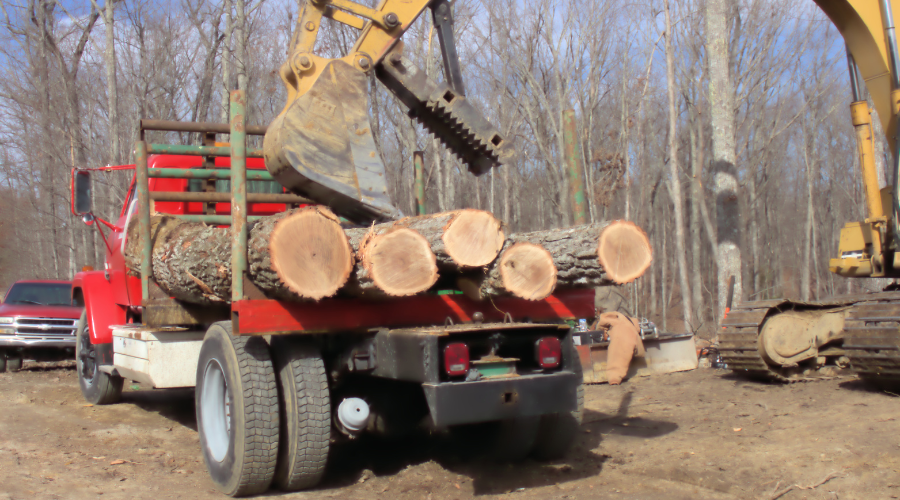

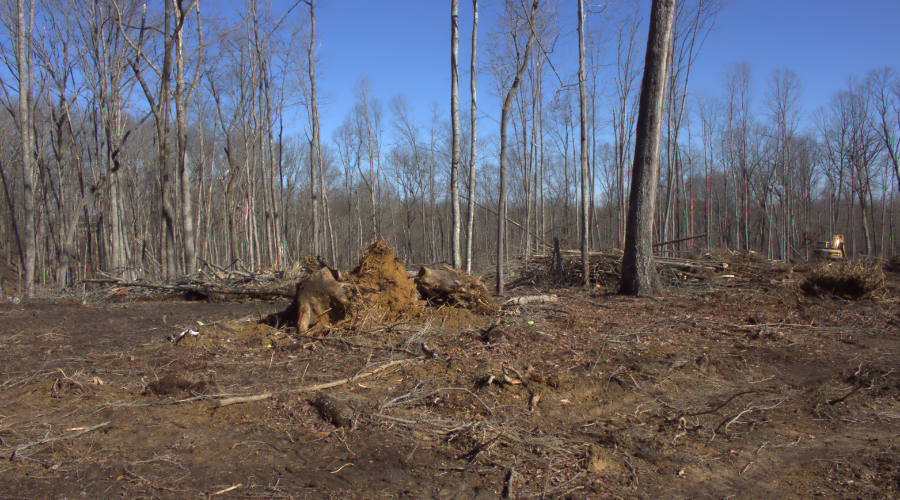


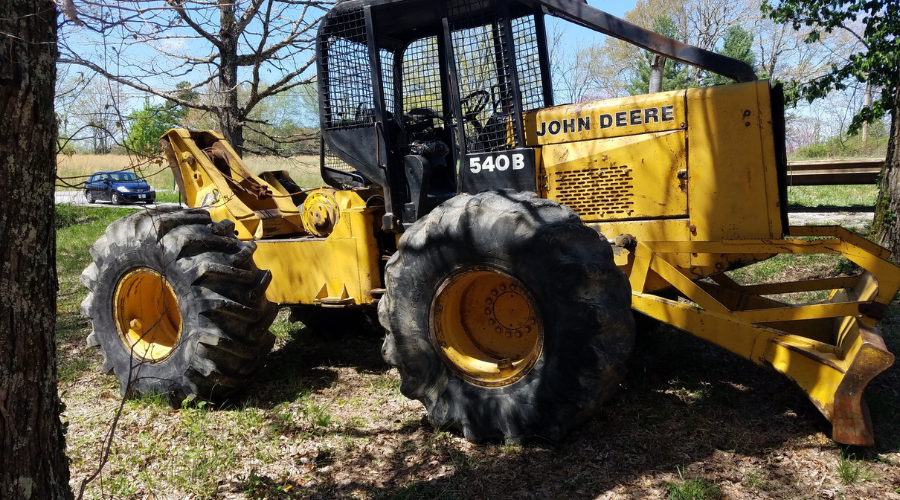
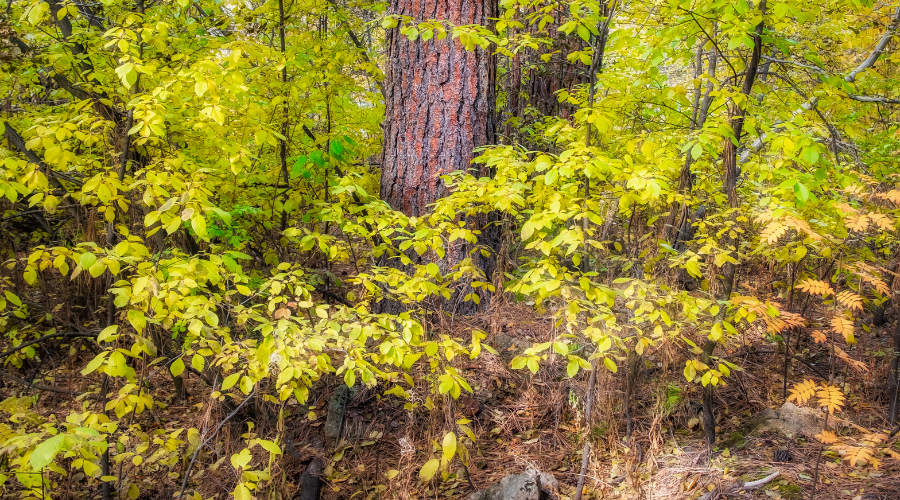
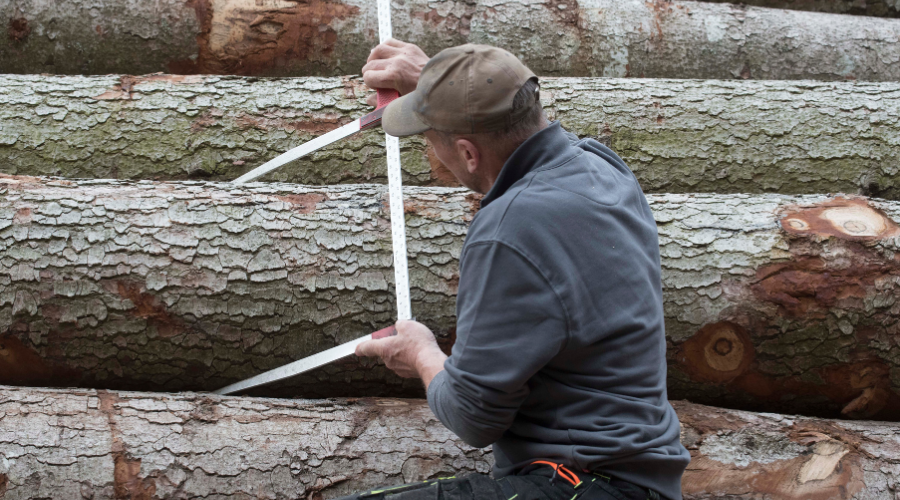
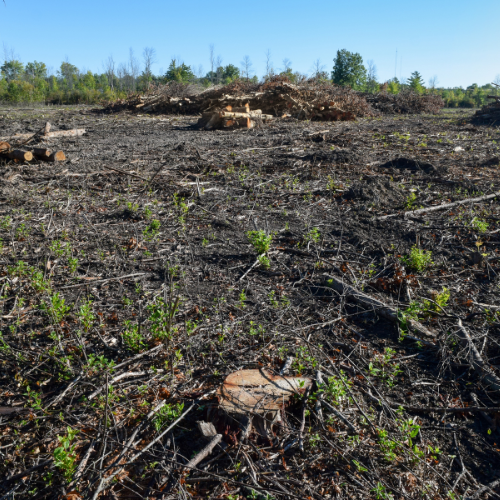
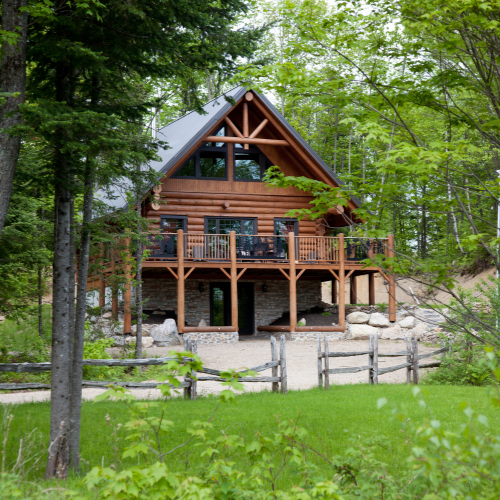

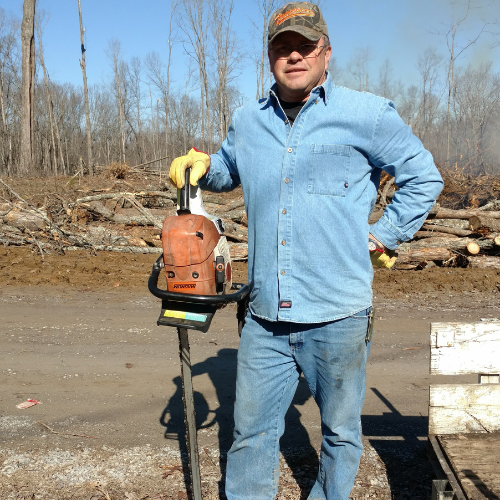
Comments